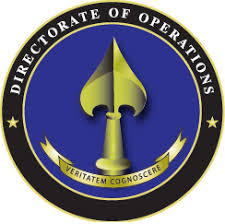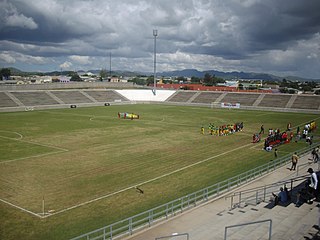Related Research Articles

The Australian Institute of Sport (AIS) is a high performance sports training institution in Australia. The Institute's 66-hectare (163-acre) headquarters were opened in 1981 and are situated in the northern suburb of Bruce, Canberra. The AIS is a division of the Australian Sports Commission (ASC), part of the Australian Government under the Department of Health and Aged Care.
The World Anti-Doping Agency is a foundation initiated by the International Olympic Committee based in Canada to promote, coordinate, and monitor the fight against drugs in sports. The agency's key activities include scientific research, education, development of anti-doping capacities, and monitoring of the World Anti-Doping Code, whose provisions are enforced by the UNESCO International Convention Against Doping in Sport. The aims of the Council of Europe Anti-Doping Convention and the United States Anti-Doping Agency are also closely aligned with those of WADA.

Cycling Australia (CA), the trading name of the Australian Cycling Federation Inc, was the national governing body for bicycle racing in Australia, and represented the interests of affiliated cycling clubs and State federations. It covered the disciplines of road, track, mountain bike, cyclo-cross, BMX.

Sport is an important part of Australia that dates back to the early colonial period. Australian rules football, rugby league, rugby union, association football, cricket and tennis are among the earliest organised sports in Australia. Sport has shaped the Australian national identity through events such as the Melbourne Cup and the America's Cup. Australia also holds the record for the largest attendance at a Rugby Union match with almost 110 000 watching the Wallabies play the All Blacks in 2000.
The Singapore Sailing Federation, also known as SingaporeSailing, is the National Sports Association (NSA) responsible for the management and organisation of the sport of sailing in Singapore.

The Directorate of Operations (DO), less formally called the Clandestine Service, is a component of the US Central Intelligence Agency. It was known as the Directorate of Plans from 1951 to 1973; as the Directorate of Operations from 1973 to 2005; and as the National Clandestine Service (NCS) from 2005 to 2015.
A blue is an award of sporting colours earned by athletes at some universities and schools for competition at the highest level. The awarding of blues began at Oxford and Cambridge universities in England. They are now awarded at a number of other British universities and at some universities in Australia, Canada and New Zealand.
The Australian Sports Commission (ASC) is the Australian Government commission responsible for supporting and investing in sport in Australia. The Commission incorporates the Australian Institute of Sport. From 2018 to 2022, it was known as Sport Australia.
Blind Sports Australia, formerly the Australian Blind Sports Federation (ABSF) was formed in 1980 as the national body to coordinate sport for the blind and vision-impaired in Australia. It encourages and provides access to international competition in world blind and multi-disabled championships for sports recognised by the International Blind Sports Federation (IBSA) and the International Paralympic Committee (IPC). BSA is headquartered near Melbourne.

The principal sports in Namibia are football, rugby union, cricket, golf and fishing. Boxing and athletics are also popular. The home stadium for all national teams is Independence Stadium in Windhoek, while Sam Nujoma Stadium in Katutura is also occasionally used.

The Namibian Electronic Sports Association (NESA) is the governing and representative body for Electronic Sports in Namibia. It was founded in 2010, and affiliated to IeSF in 2011 as the third country from Africa to obtain membership after South Africa and Egypt. NESA organises various esports leagues and the Namibian National esports team. In 2012 it was closed due to lack of community interest and participation. It was re-opened in 2013 by the original founders and select members from the community. The first formal National Team was selected in 2014 for DotA2, called the Desert Sidewinders. NESA has since awarded National Colours via the Namibian Sports Commission annually and expanded on the number of National titles hosted per year. In 2017 NESA sent the very first Namibian esports athlete abroad to participate in Tekken7 at the IESF World Championship held in Busan, South Korea. More Namibian athletes has since then been sent to partake in the annual IESF World Championship and numerous online international test matches are hosted each year.

The Malaysian Ministry of Youth and Sports, abbreviated KBS, is a ministry of the Government of Malaysia that is responsible for youth, sports, recreation, leisure activities, stadiums, youth development, and youth organisations in the country.
The Australian Underwater Federation (AUF) is the governing body for underwater sports in Australia.

Mind Sports South Africa (MSSA) is recognised by Act of Parliament as the national controlling body for mind sports in South Africa.
Comhairle Fo-Thuinn, also known as Irish Underwater Council (IUC) and trading as Diving Ireland, is the national governing body for recreational diving and underwater sports in Ireland.
Australia has been at the forefront in the fight against doping in sport. It was one of the first countries to establish a sports anti-doping agency and is a member of World Anti-Doping Agency (WADA). Australia abides by World Anti-Doping Code. In 2010, Australian John Fahey was re-elected as President of WADA for a second and final three-year term which finished at the end of 2013. Australia like other major countries has been embroiled in major doping in sport controversies and issues.
The organisation of sport in Australia has been largely determined by its Federal system of government – Australian Government and six states and two territories governments and local governments. All three levels play an important role in terms of funding, policies and facilities. Each major sport is managed by a national sports organisation, with state counterparts that manage community sporting clubs. Umbrella or peak organisations represent the interests of sports organisations or particular sport issues. Education sector plays a small role through universities and schools. Private sector's involvement is extensive in professional sport through facilities, club ownership and finance/sponsorship.

Gbenga ElegbeleyeListen is a Nigerian sports administrator and a politician. Gbenga Elegbeleye is the Director-General of the National Sports Commission in Nigeria. He was a legislator in the House of Representatives (Nigeria).

The National Security Committee (NSC), also known as National Security Committee of Cabinet, is the peak decision-making body for national security and major foreign policy matters in the Australian Government. It is a committee of the Cabinet of Australia though decisions of the NSC do not require the endorsement of the Cabinet itself.
Local government in Nepal is the third level of government division in Nepal, which is administered by the provincial governments which in turn is beneath the federal government. Article 56 of the Constitution of Nepal 2015 defines local government as rural municipalities, municipalities and district assemblies.
References
Notes
- ↑ "Promulgation of Namibia Sports Act, 2003 (Act No. 12 of 2003), of the Parliament" (pdf). Government Gazette of the Republic of Namibia. No. 3050. Government of Namibia. 27 August 2003.
- ↑ Cabinet approves categorisation of sports codes. Namibia Press Agency, 2 August 2018.
- ↑ "Matheus calls on leadership to focus on talent identification". The Namibian . 17 March 2020.